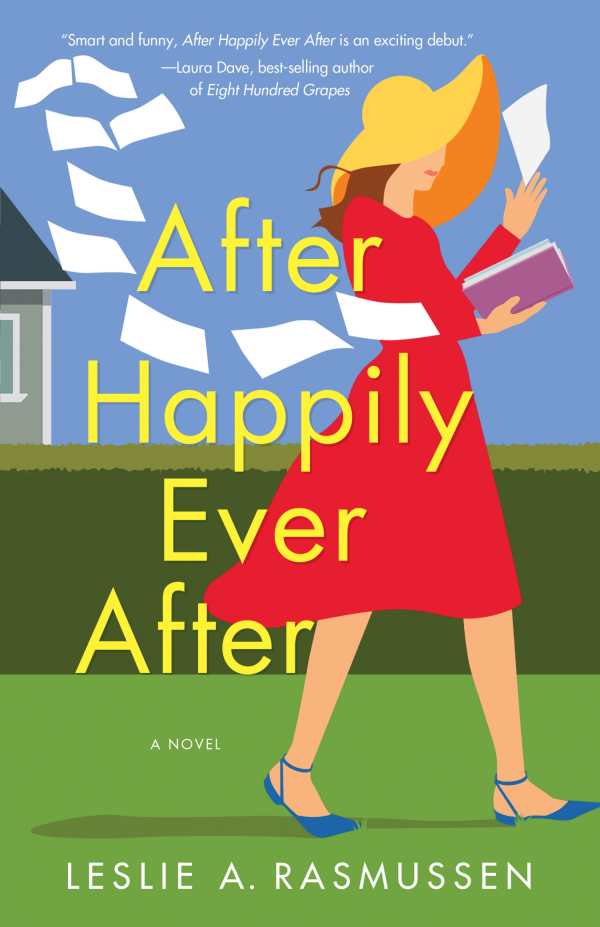After Happily Ever After
After Happily Ever After is a romantic comedy novel with depth, about a middle-aged woman finally coming into her own.
A Connecticut housewife traverses middle age with self-deprecating wit and aplomb in Leslie Rasmussen’s novel After Happily Ever After.
In midlife crisis, Maggie doubts whether she is still the beautiful, ambitious woman whom her husband married. She also has her doubts about her teenage daughter’s new sexy boyfriend, and she can’t find her mixer because her compulsive mother rearranged her kitchen. Then her estranged brother tells her about her father’s catastrophic diagnosis and, just when Maggie thinks circumstances can’t get worse, a strapping younger man tries to convince her he can make things all better.
The opening chapter sets the tone for the first half of the novel; it covers an angst-filled morning at Maggie’s house. The pacing is slow, exaggerating Maggie’s ennui. The closed settings, including homes, care facilities, and the gym, reinforce Maggie’s sense of restlessness and confinement. But this simmering stew of suburban irritations gives way to a heavy climax in which every character experiences their own crisis. What started out as a familiar tragic comedy becomes a stage for serious decisions.
The writing relies on dialogue and reads like a television drama. Realistic exchanges grumble, chatter, and banter along; they occur over rushed breakfasts and move through to suggestive dinners. When she opens up to her mother, Maggie’s daughter’s decisions about how close to get to her boyfriend parallel her mother’s decisions about how to handle the attention she gets from an attractive guy at the gym, so that Maggie learns from her daughter’s budding independence.
When she’s not conversing with friends or family, Maggie shares her inner thoughts, carrying the action with her signature cynicism. Maggie’s outlook changes over time, thanks to the help of solid friends who support her whole family. There’s conscientious introspection behind her biting humor.
Maggie’s father and husband narrate a few of their own chapters, exposing second perspectives on their familiar problems, including around sex, aging parents, extramarital temptations, work stress, and sibling rivalry. Through them, the modern family itself becomes a character whose prospects are uncertain. But because Maggie’s voice is so dominant, their interludes are comparatively inauthentic.
Michael, Maggie’s love interest, is the chink in her drama. That he isn’t given chapters of his own to narrate suggests his lesser place in the book. While he spices up Maggie’s humdrum days with his travel writing adventures, empathy, and boyish traits, he becomes more of a problem to tackle than someone to get to know. The opposite is true of this wily novel. At first glance, it is flippant and casual, but scratch the surface, and a beefier narrative is revealed.
About a soon-to-be empty nester learning to love herself, one blunder at a time, After Happily Ever After is a delightful and probing novel.
Reviewed by
Mari Carlson
Disclosure: This article is not an endorsement, but a review. The publisher of this book provided free copies of the book and paid a small fee to have their book reviewed by a professional reviewer. Foreword Reviews and Clarion Reviews make no guarantee that the publisher will receive a positive review. Foreword Magazine, Inc. is disclosing this in accordance with the Federal Trade Commission’s 16 CFR, Part 255.

